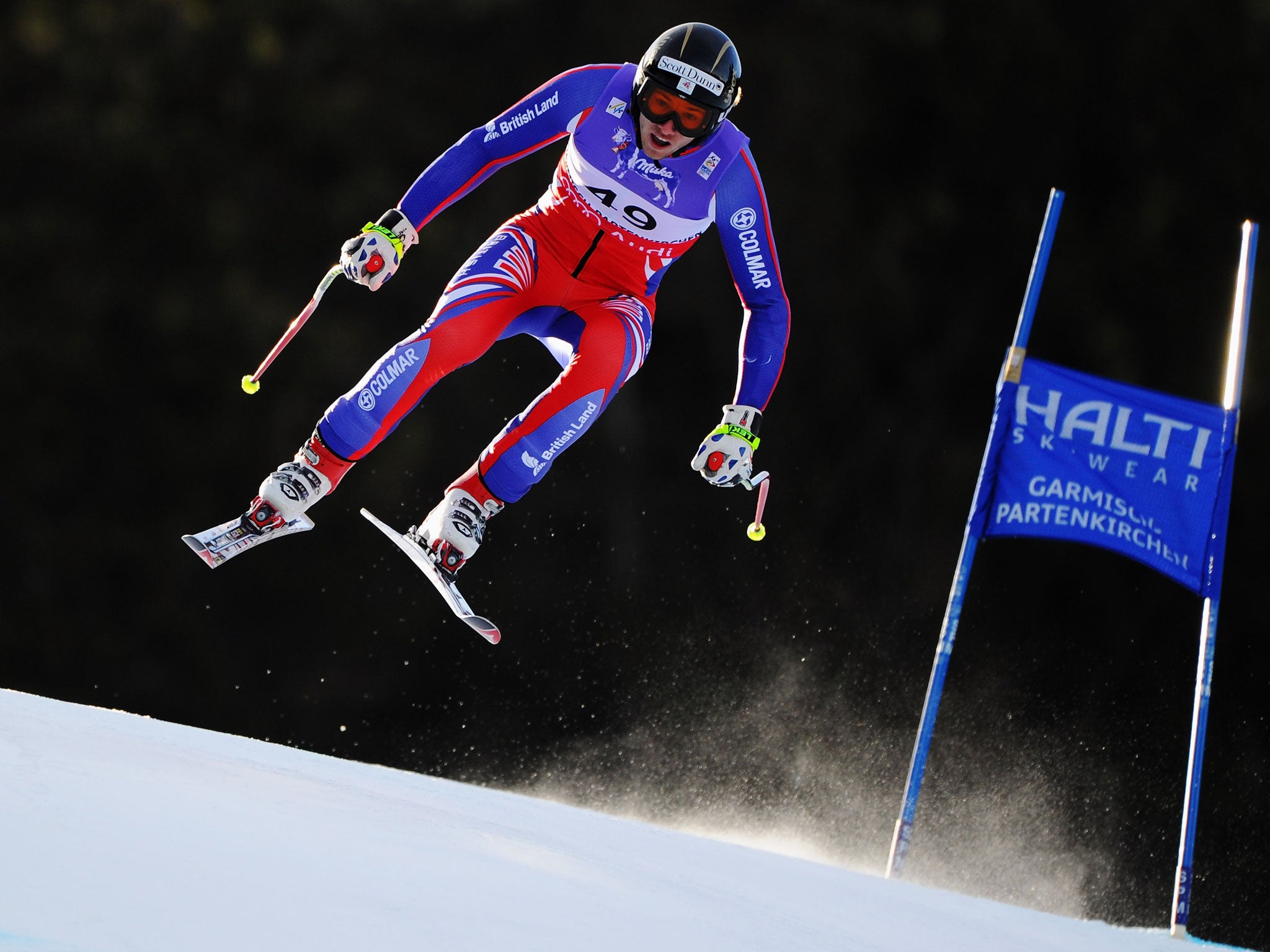Kevin Garside: Ed Drake works on a building site and pays to transport his own skis. It’s no way to maximise your Winter Olympic medal chances
'I might have to walk on the plane in my ski boots. I’ve seen guys do it'

The amateur in sport is still out there. And that is not a good thing if we want medals to be the food of love. Ed Drake is a British Olympian, an elite athlete about to embark on the qualification process for the 2014 Winter Games in Sochi. This week in Canada he contests the first of seven Olympic qualifying events for the ski cross discipline, a mad amalgam of downhill and obstacle course for which only nutters need apply.
Drake paid his own fare to Canada, including the £130 extra baggage charges for lumping his skis and boots across the Atlantic. Well done British Airways. Brilliant bit of PR there, the national carrier ignoring personal pleas from the skier via Twitter to waive the baggage charges. Drake wasn’t even asking for an upgrade. He is 6ft 3 in and folds himself into an economy seat for nine hours. That should help him get across the line. Wonder if they charge BA ambassador Justin Rose to transport his clubs to and fro? Wait a minute, here’s an idea.
BA fly thousands every year from Britain to the Alps and to North America for winter skiing holidays. Ed Drake is a skier. It is the season of the winter Olympics. Why not boost business by using Drake and his comrades as the focal point of an ad campaign helping BA connect with a skiing community that runs into millions of high net worth individuals? Genius. A career in PR marketing beckons. Someone, somewhere is missing a trick.
“We have been tweeting at them to try to get a response. We are not asking for much. There are four of us going out to race. Trying to fit all of the ski equipment and clothes for two weeks into a baggage limit of 23 kilos is not easy. I might have to walk on the plane in my ski boots.” Don’t laugh. It happens. “I’ve seen guys do it. A couple of years ago I had to wear my helmet and goggles onto a plane because we weren’t allowed to clip them to our hand luggage and couldn’t fit them in the hold luggage.”
Drake has been at the wrong end of winter sports penury throughout his career. When he began his journey nine years ago as a 19-year-old, there was funding for British skiers breaking into the world top 100. The moment he crossed that threshold funding was withdrawn, reducing him to beggar status. Drake calculates it costs him £20,000 to compete during the season. He drives from event to event in Europe in a patched-up VW Passat (06 plate). He stays in billets that cost €40 a night. No en-suite in his sporting life.
To make all this possible he coaches in the summer at an indoor ski centre in Hemel Hempstead and fills in with a bit of labouring on a building site in St Albans. The lack of funding of British winter sports effectively takes a lump hammer to their hopes of ever escaping the Eddie the Eagle perceptions that still attach. Michael Edwards, as he was known on the piste, was a serious skier, but was forced through lack of funding to switch to ski-jumping, for which Olympic qualification was more straightforward since no one else in Britain was mad enough to do it.
There is something of this behind Drake’s switch to ski cross. He fell into it by accident after he had driven eight hours across Switzerland to contest a Super G event in Saas-Fee that was cancelled. “I saw there was a ski cross race on and decided to enter that instead. I haven’t looked back. It’s so much fun, like racing with your mates.”
Drake likens the event to BMX, a specially built course full of jumps, banked corners, off-camber turns, rollers, etc. Four go at it simultaneously, with the first two progressing to the next round. It is made for TV, which ought to make it easier to sell. British Ski and Snowboard, the sport’s governing body, receives £300,000 a year to fund the Alpine events, none of which feeds through to non-medal prospects. Britain’s podium chances lie in the ski and snowboard freestyle events, which command the bulk of the dosh, but even that does not amount to a living wage.
Winter sports as a whole command fewer than five per cent of UK Sport’s annual £100m handout. “We were training in Italy a month ago. It cost us €150 a day just to use the track. We have definitely got the talent in this country. What we don’t have is the backing to allow us to train in the same way as our competitors. Our rivals are fully funded. They are not working on building sites after the gym in the morning. They get the right nutrition, the right coaching, the right support all laid on. They get to concentrate on what they are good at. I get to concentrate on what I’m good at after I have done a load of other stuff. It’s not a fair fight.”
Join our commenting forum
Join thought-provoking conversations, follow other Independent readers and see their replies
Comments
Bookmark popover
Removed from bookmarks